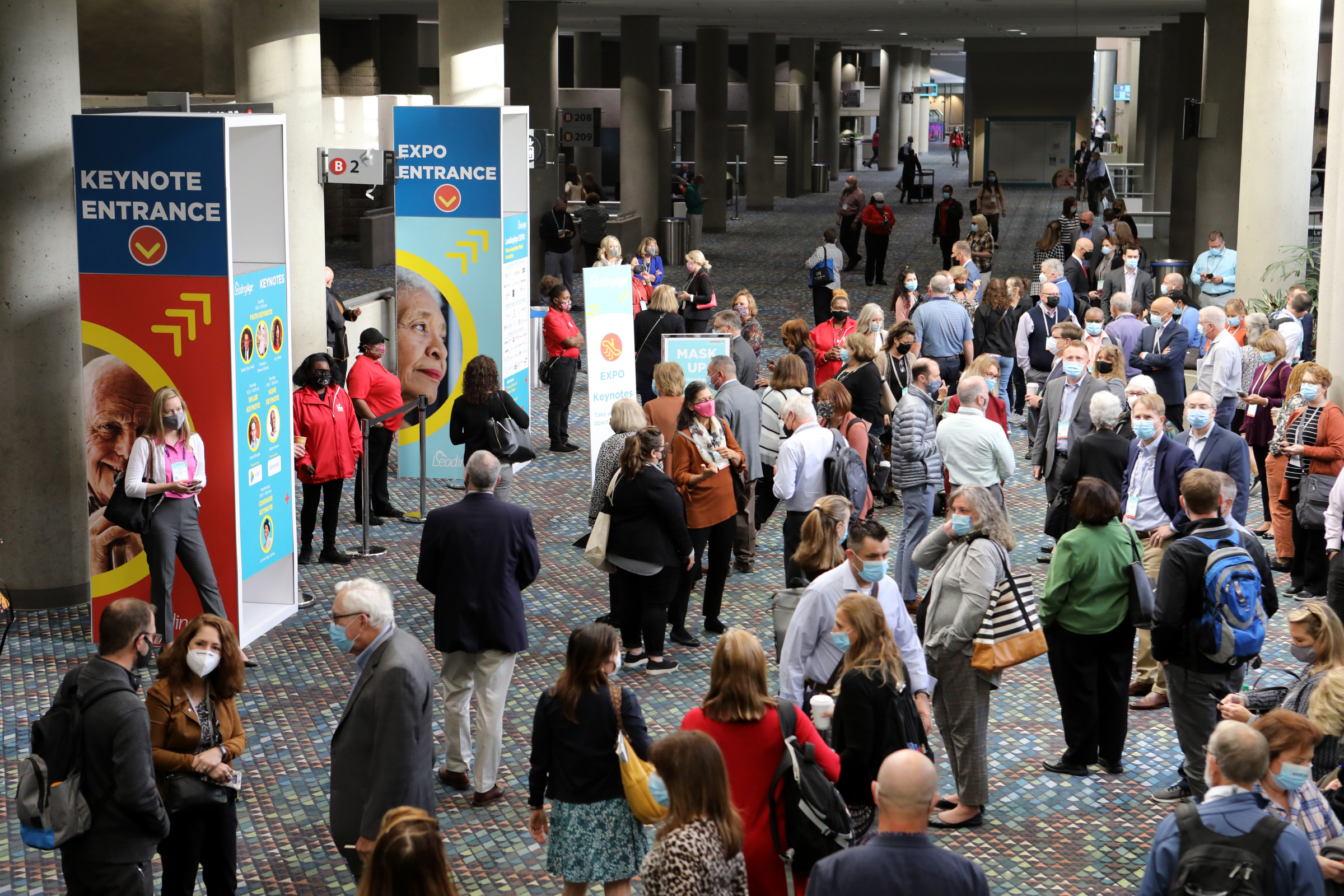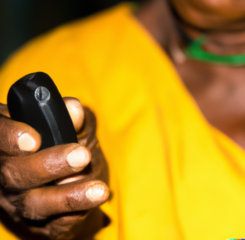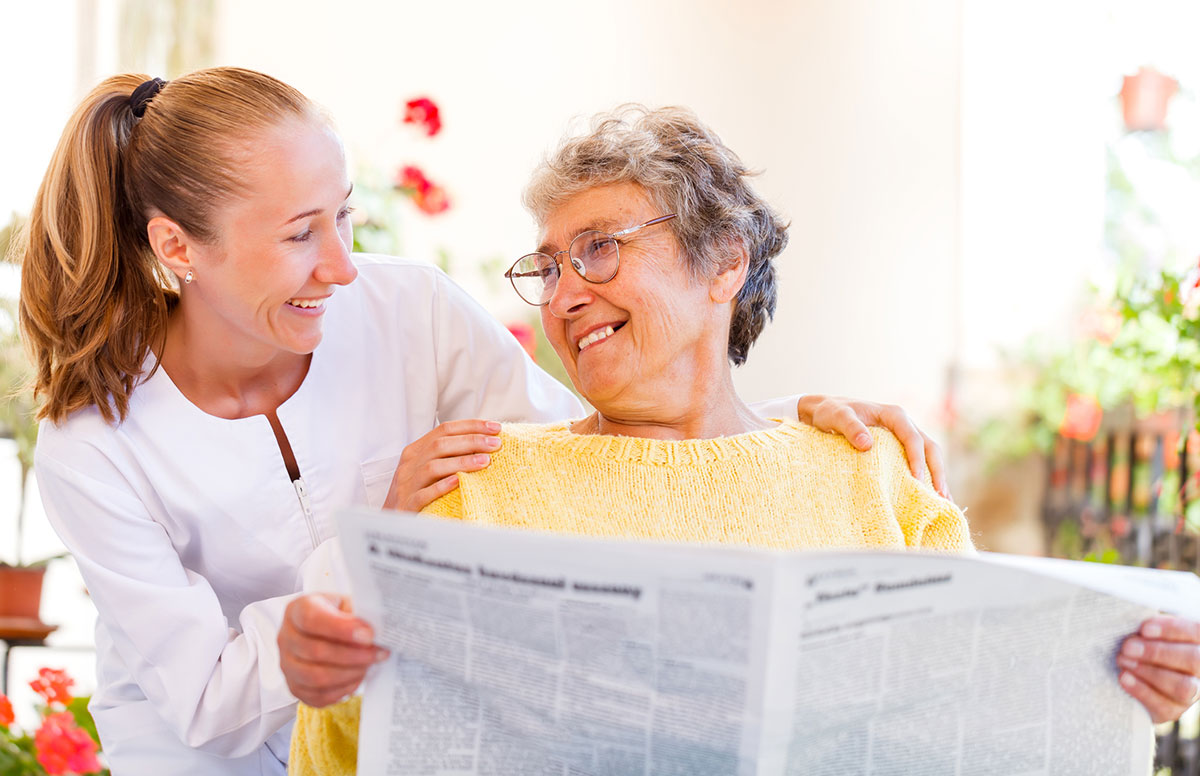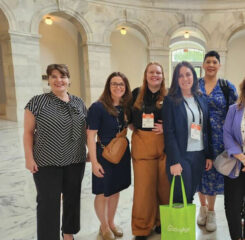Interview with Scott Crabtree and Jere Hales – February 8, 2021
Scott Crabtree, President and CEO and Jeré Hales, Chief Operating Officer, both of Lambeth House, a Life Plan Community in New Orlean, joined the February 8, 2021 LeadingAge Coronavirus Update Call to talk about COVID-19 vaccinations. They responded to questions from Ruth Katz and from callers.
Q: How has COVID-19 affected Lambeth House?
A: We are just a few weeks out from the one-year anniversary of the start of the pandemic in New Orleans. Mardi Gras escalated the outbreak, and New Orleans was an early COVID-19 hotspot. Our first case at Lambeth House occurred on March 10 and our last case in a very intense outbreak was on March 29. Because we were one of the earliest outbreak areas of a very new disease, we did not have as much guidance as those organizations that were in later waves. Since March 29 we have had two positive cases of residents in independent living which occurred around the December holidays. We lost 60 employees who made the decision, after the outbreak, that the work and environment were too difficult, and they needed to find other employment. From June 1 through this week, we have only had six employees test positive. We are proud of our residents and staff and are grateful for support from LeadingAge and our colleagues. Our residents and staff have worked tirelessly and have become close over this past year.
Q: Please tell us about how you have handled vaccinations.
A: Way back in the summer we made the decision that we would make vaccines mandatory when they were available. We started the process of educating staff and planning for participation in early October, even before there were vaccines with Emergency Use Authorization.
Q: What all did you have to explore to follow through with a vaccine mandate?
A: We checked with legal counsel and we understood that an EUA vaccine couldn’t be made mandatory for residents. But that wasn’t a problem as the residents were eager for the vaccine. We are now one person short of having 100% of our residents vaccinated. Our biggest fight was with the state which only wanted to vaccinate the nursing home portion of residents and staff. We convinced them that not vaccinating the entire high- rise building would be a mistake. We signed up early with the Walgreen’s Pharmacy Partnership and had everything ready for clinics by Thanksgiving.
Q: How did you work with staff to encourage vaccination?
A: We began very early on communicating about vaccines as the information became available. We had conversations in small groups and then one-on-one with people who were struggling. It was daunting for some people who were fearful that they were among the first people in the country to get the vaccine. Lambeth House framed getting the vaccine as “our moral obligation” and that resonated with people and was more impactful than empirical information.
Q: Did people say “how can you make me do this”?
A: The concerns we heard were more around fear rather than resistance. We provided information and talked about fear and courage.
Q: Have you had a second clinic? How were the side effects?
A: Yes, we have vaccinated more than 300 people with a second dose. The side effects from the second dose were worse, but to be expected. We had educated staff about this as we knew the importance of transparency and trust. If you had a strong reaction and missed work after the shot, you got a paid day off. Everyone pitched in to cover absences. Early on we conducted a “Not Here, Not Us” internal campaign. Residents, families, and staff members took a pledge to do everything they could to mitigate the spread of the virus. The vaccine mandate fit with that.
Q: How will things change now that you have such a high rate of vaccination?
A: 99.74% of our people have been vaccinated, which will soon allow us to open up within our walls to resume communal dining, social events, etc. The staff realized that the only way for the residents to get their lives back is for staff to do the right thing. Of course, there are many precautions we still need to observe.
Q: Did you do anything special to handle employees who were anti-vaccine?
A: We met in small groups and one-on-one to listen and to teach. We had an African American physician meet with people individually. We did lose ten employees who were not willing to be vaccinated. We made it clear that it was not punitive and that we would take their voluntary resignation and would consider them for re-employment in the future should they decide to get vaccinated.
Q: Did you deal with religious or medical exemptions to receiving the vaccine?
A: One staff member asked for a religious exemption but could not show us that it was actually part of her religion’s doctrine. It turned out that she was fearful and with encouragement she took the vaccine. We had three temporary Medical exemptions and two are getting their first doses in March. The third person had been treated with Remdesivir within 90 days so was not able to receive the vaccine. We were firm on what reasons we would accept and what we would not. We made it clear that a religious exemption needed to be supported with their religious doctrine.

Most Recommended
February 29, 2024
Say Yes to Lobby Day!
April 05, 2024
Cyberattack Updates: Change Healthcare Payment Platform
April 22, 2024
 Nursing Home Staffing Ratios: LeadingAge Is On the Case
Nursing Home Staffing Ratios: LeadingAge Is On the Case
March 27, 2024
 Colleagues on the Move, March 27, 2024
Colleagues on the Move, March 27, 2024
April 12, 2024
Improving Medicare Advantage
Recently Added
April 22, 2024
CAST Safety Technology Selection Tool Updated
April 22, 2024
CAST Members in the News
April 22, 2024
Mental Health Training for HUD Service Coordinators
April 19, 2024



